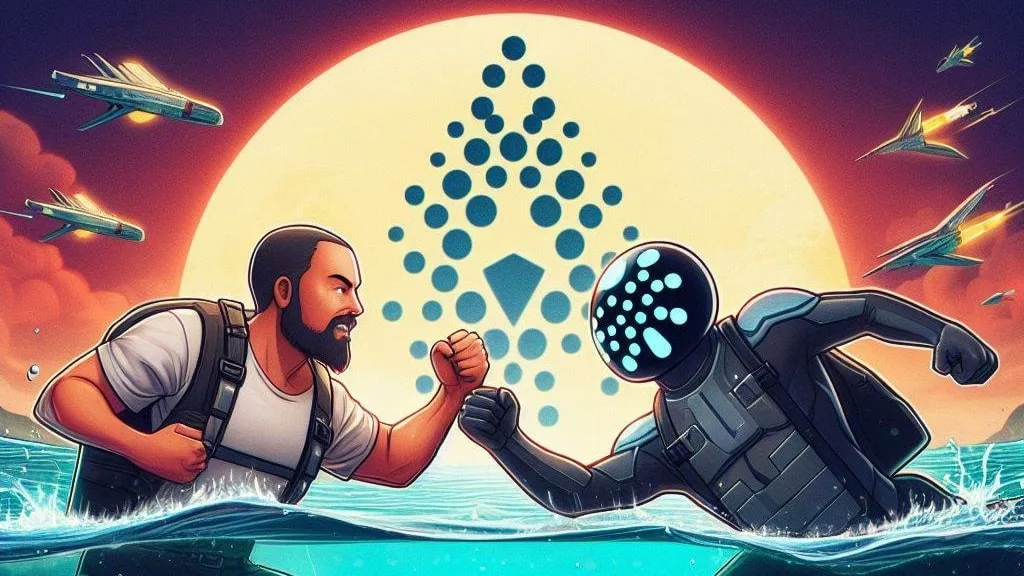
Introduction: The cryptocurrency community has been stirred by a clash between Cardano’s visionary founder Charles Hoskinson and prominent crypto influencer Ben Armstrong, also known as Bit Boy Crypto. The contention erupted following Armstrong’s bold assertion in a video that “ADA is dead,” igniting fervent debate and focusing attention on Cardano’s trajectory within the crypto sphere. As tensions heighten, Hoskinson’s refusal of Armstrong’s interview invitation adds fuel to the controversy, shedding light on the underlying dynamics at play.
The Genesis of Discord: The controversy surrounding Cardano flared when Ben Armstrong voiced skepticism about the project’s progress relative to other blockchain ventures. In a YouTube video, Armstrong questioned Cardano’s current standing in the market, casting doubt on its ability to keep pace with projects like Solana and Avalanche in terms of price surges and user base expansion. While acknowledging Cardano’s potential, Armstrong raised valid concerns about its competitiveness against newer, more prominent projects.
Hoskinson’s Swift Response: Charles Hoskinson wasted no time in responding to Armstrong’s remarks, expressing disappointment at the assertion that “ADA is dead.” Taking to social media, Hoskinson conveyed his dismay and extended well wishes to Armstrong, signaling his disagreement with Armstrong’s viewpoint. When Armstrong extended an olive branch, inviting Hoskinson for an interview to delve deeper into the matter, Hoskinson opted to decline, asserting that once one adopts the belief that “ADA is going to die,” further dialogue becomes futile.
Analyzing Armstrong’s Concerns: Armstrong’s apprehensions about Cardano’s trajectory and its competitiveness echo broader conversations within the crypto community. While recognizing Cardano’s past achievements and lauding Hoskinson’s leadership, Armstrong highlighted various challenges, including community engagement, adoption hurdles, liquidity issues, and institutional investment constraints. Despite these apprehensions, Armstrong stressed the importance of Cardano stepping up to compete with other blockchain projects on fundamental levels to enhance its appeal and utility.
Hoskinson’s Stand on Interview Invitation: By rejecting Armstrong’s invitation for an interview, Hoskinson reinforced his stance, signaling his reluctance to engage in a debate regarding Cardano’s viability. While acknowledging Armstrong’s gesture to mend fences, Hoskinson reiterated his conviction that further discussion would be fruitless once the premise of “ADA is going to die” is established. This refusal underscores the depth of disagreement between the two parties and underscores the ongoing debate surrounding Cardano’s potential and trajectory.
Implications for Cardano and the Crypto Community: The clash between Hoskinson and Armstrong underscores the broader discussions surrounding Cardano’s journey and its competitive position in the crypto market. While differences of opinion are inevitable in a dynamic and diverse community, this exchange highlights the importance of constructive dialogue and critical analysis. As Cardano navigates its course amidst challenges, it is imperative for stakeholders to engage in meaningful discourse, explore solutions, and collectively strive for the project’s success.
Conclusion: The recent clash between Charles Hoskinson and Ben Armstrong over Cardano’s trajectory serves as a microcosm of the complexities and debates inherent in the cryptocurrency realm. While Armstrong’s concerns reflect broader sentiments within the community, Hoskinson’s refusal to engage further underscores the depth of disagreement. As Cardano charts its course in the crypto landscape, stakeholders must prioritize constructive dialogue, address challenges head-on, and collaborate to propel the project forward. Ultimately, the resolution of conflicts and the pursuit of common goals will shape Cardano’s journey and its impact on the broader crypto ecosystem.
Get the latest Crypto & Blockchain News in your inbox.